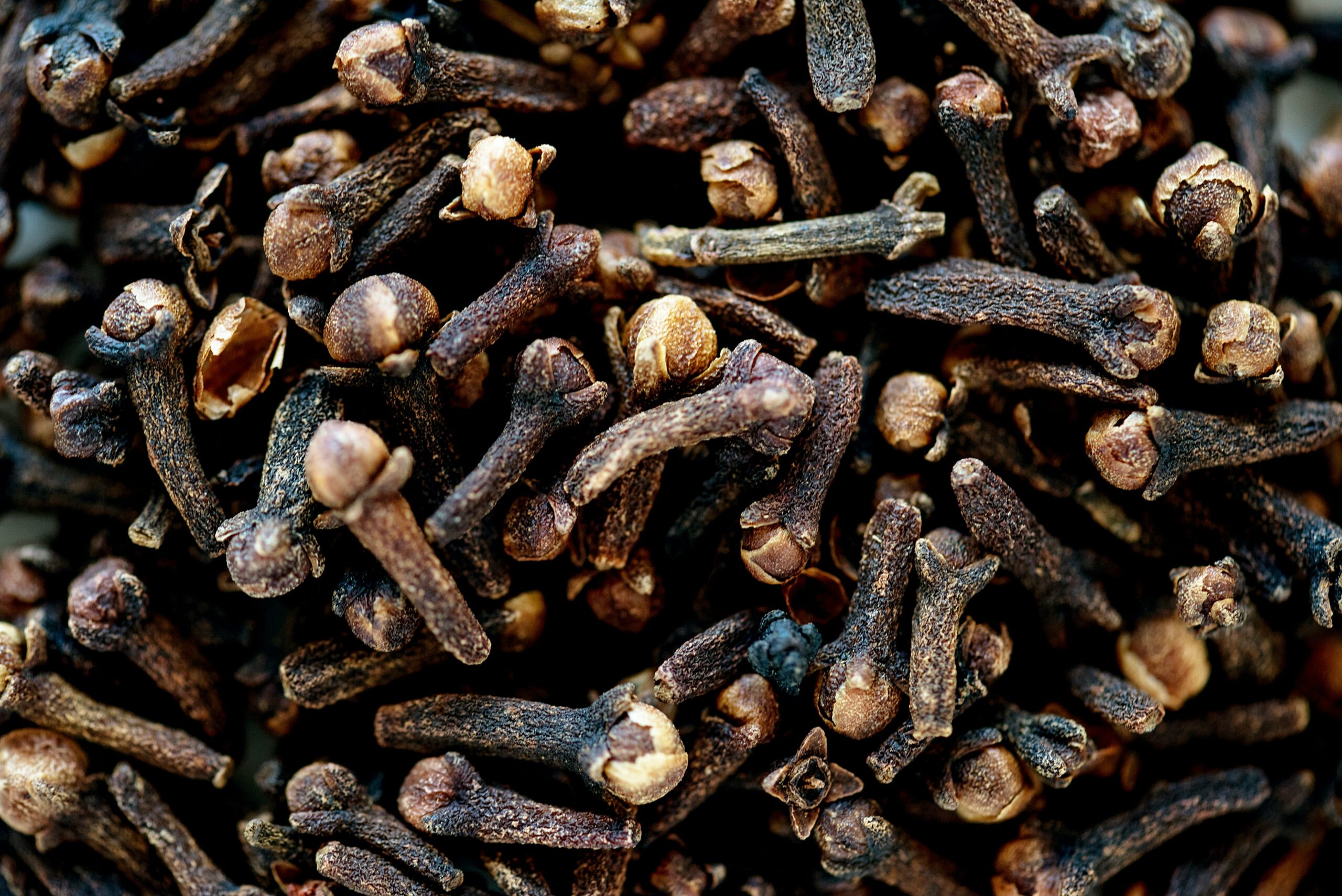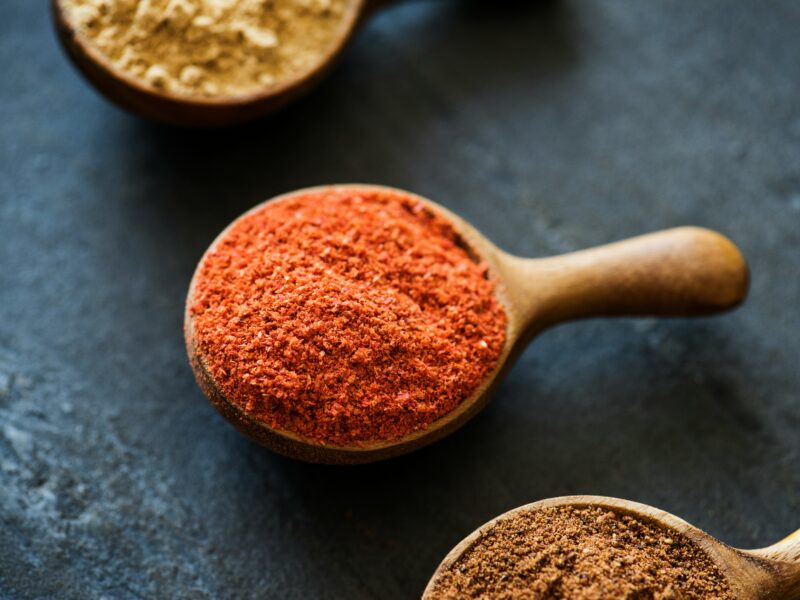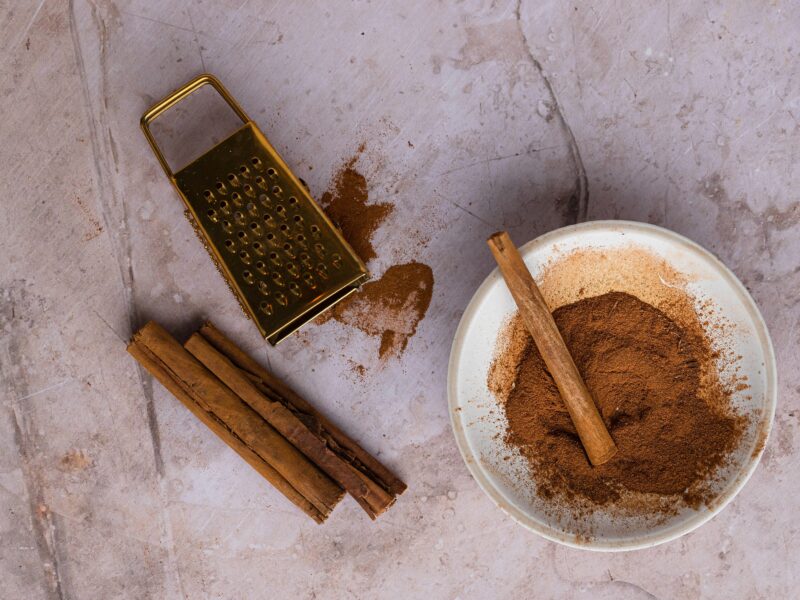Clove is one of the most distinctive and powerful spices, known for its bold, warm, and slightly sweet aroma. Used in both sweet and savory dishes, it plays an essential role in global cuisine, from Middle Eastern cuisine to European baked goods and mulled wine. Its strong, spicy-sweet flavor makes it a key component in spice blends like garam masala and Chinese five-spice. But what makes cloves so special, and how can you best use them in cooking?
Origin and cultivation of cloves
Cloves come from the dried flower buds of the Syzygium aromaticum tree, a member of the Myrtaceae family. Native to the Maluku Islands (Spice Islands) of Indonesia, cloves have been prized for centuries in global trade. Today, major producers include Madagascar, Sri Lanka, Tanzania, and India.
These evergreen trees require tropical climates with high humidity and take several years to mature. The flower buds are harvested before blooming and then sun-dried until they develop their deep brown color and intense aroma. Cloves are rich in essential oils, which give them their signature warmth and pungency.
What do cloves taste like?
Cloves have a bold, warm, and slightly bitter flavor with an intense spiciness. They contain eugenol, an aromatic compound that gives them their peppery heat and slightly numbing sensation. While cloves have a hint of sweetness, they also bring earthy and smoky undertones, making them a complex and versatile spice.
Flavor nuances:
- Warm and slightly sweet
- Strong spiciness with a peppery bite
- Hints of bitterness and smokiness
- Works well in spice blends, baked goods, and savory dishes
Clove substitutes – what can you use instead?
If you don’t have cloves on hand, consider these alternatives:
- Allspice: Offers a similar warmth but is milder.
- Nutmeg: Provides warmth but lacks the peppery intensity.
- Cinnamon and black pepper: A combination that mimics clove’s spiciness and depth.
- Star anise: Delivers a comparable sweetness with less sharpness.
Difference between whole and ground cloves
Whole cloves retain their full essential oils, which gives them a stronger and more complex flavor. They are best used in long-simmered dishes, where their robust aroma can infuse broths, sauces, and slow-cooked meats. They are also commonly studded into hams, oranges, and other ingredients to impart warmth and spice gradually.
Ground cloves, on the other hand, are more concentrated in flavor but lose their potency more quickly. They blend seamlessly into baked goods, spice mixes, and sauces, making them ideal for gingerbread, pumpkin spice blends, and rich marinades. While convenient for quick preparation, they should be stored properly to maintain their intensity over time.
How to use cloves in cooking
Cloves are widely used in both sweet and savory recipes.
In sweet dishes and beverages:
- Baking: A key ingredient in gingerbread, spice cakes, and cookies.
- Hot drinks: Common in chai, mulled wine, and spiced cider.
- Infused syrups: Used in puddings, jams, and holiday beverages.
In savory dishes:
- Arabic cuisine: Found in Yemni lamb stews or Saudi Arabian rice dishes.
- European cuisine: Used in pickling, cured meats, and sauces.
- Meat and stews: Perfect match for lamb, pork, and hearty braised dishes.
- Mulled Wine: A warm, spiced drink infused with cloves, cinnamon and citrus
- Gingerbread Cookies: Classic holiday cookies infused with cloves, cinnamon and nutmeg
- Slow-Cooked Spiced Ham: Studded with whole cloves for a deep, aromatic flavor.
Cooking tips:
- ✔ Use whole cloves for long-simmering dishes and remove them before serving.
- ✔ A little goes a long way—excess cloves can overpower a dish.
- ✔ Store in an airtight container away from heat and moisture to maintain freshness.
Where to buy cloves
Cloves are available in whole and ground form at most grocery stores, spice shops, and online retailers. For the best quality, look for dark brown, plump cloves with a strong aroma. Whole cloves should feel oily and slightly flexible, indicating high essential oil content.
Why cloves deserve a place in your kitchen
Cloves bring bold warmth and depth to both sweet and savory dishes. Their strong, slightly sweet spiciness enhances baked goods, spice blends, and slow-cooked meals. Whether used whole or ground, cloves add a distinctive flavor that enhances a variety of cuisines. Proper storage keeps them flavorful for extended use.


